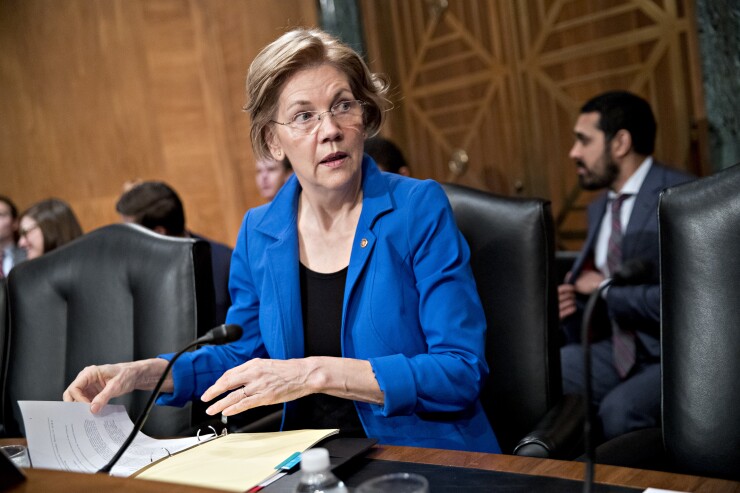Receiving Wide Coverage ...
It's a start ...
Goldman Sachs’ consumer division “generated just 3%” of the bank’s pre-tax earnings in the first nine months of 2019, “highlighting the group’s continuing heavy reliance on its traditional businesses,” the Financial Times reports. Filings made by the bank “show that Goldman’s consumer and wealth management unit, which includes its online bank Marcus, its Apple credit card and its newly acquired investment adviser United Capital, generated $256 million of its $8.3 billion of pre-tax earnings” in the first three quarters of last year. The division’s net revenues for the nine-month period were $3.8 billion of the bank’s $26.6 billion. In the third quarter of 2019, including United Capital, it accounted for 16% of revenues and 5% of pre-tax profit.”
However, Devin Ryan, an analyst at JMP Securities, “said he was not concerned about the small size of the businesses which Goldman has invested billions of dollars developing and acquiring,” adding that it “will be a meaningful driver of growth in the company in the future.
Separately, Bryan Cohen, a former Goldman vice president, “pleaded guilty in Manhattan federal court Tuesday to his role in an
According to prosecutors, the “sprawling conspiracy generated tens of millions of dollars in illegal profits,” the FT says. Cohen “is the
Leaner
UBS “is preparing to
The move by the Swiss bank will “strip out layers of bureaucracy in its wealth-management arm as it attempts to keep its edge as bank to the world’s rich and cut costs,” the Journal says. “Up to three layers of management would be removed in some areas, to try to give managers greater powers in attracting and servicing clients. Financing and trading operations for wealth clients will move to UBS’s investment bank.
“UBS and its rivals are in
ESG lending
Banks are looking more closely at “environmental and social risks in deciding whether to lend money to certain corporate borrowers,” the Journal reports. Fitch Ratings found that 67% of the 182 banks it surveyed “screen their loan portfolios for environmental, social and governance risks.”
“At some banks, that means making commitments to stop lending to companies in industries viewed as high risk, such as those that operate private prisons or manufacture firearms. At others, it involves collaboration among credit underwriters, sustainability experts and investor relations executives to review potential credits. Financial institutions are
Meanwhile, “Barclays is under pressure to stop financing some fossil fuel companies after a group of shareholders filed a landmark climate change resolution for the British bank’s annual investor meeting, thrusting the European financial industry to the center of the debate on global warming,” the FT reports. “Eleven institutional investors, which collectively manage £130 billion, co-filed the proposal. The resolution calls on Barclays to publish a plan to
This year “may be the year when climate-risk analysis of portfolios moves out of a specialized niche
Wall Street Journal
Forgive us our debts
Sen. Elizabeth Warren “is proposing a sweeping overhaul to the consumer bankruptcy system” that would “make the
Warren’s plan would also “eliminate a requirement that filers take credit counseling classes. Ms. Warren also would enable more people to file for chapter 7 protection, the cheapest and most popular form of bankruptcy. Another provision in her plan would give student-loan borrowers the power to leave that debt behind when they file for bankruptcy.”

Rising trusts
“Things are looking up” this year for the two largest U.S. trust banks, State Street and Bank of New York Mellon, which “were at times left out of the party” last year, when banks stocks rose 32%. “Investors’ big fear was that long-building fee pressure on fund managers, and in turn on the banks who service them, had reached an acute stage,” the paper says.
“But things brightened up late in the year. State Street said
Financial Times
The envelopes, please
The Monetary Authority of Singapore “is set to
Quotable
“We find that ESG screening





